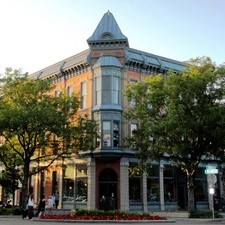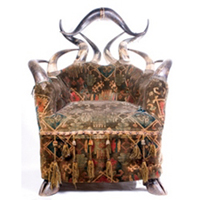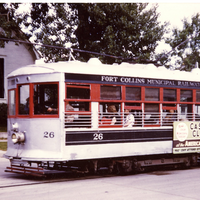My Mother said, "Join the Service"
My Mother said, "Join the Service"
Virginia Moore
January 17, 1995
Interviewer: Linda Bell
Virginia Moore was 32 when she joined the Navy at the urging of her mother, who thought her strong and independent daughter should do almost anything but her chosen profession of social work. It wasn't that Moore's mother was afraid for the daughter who had completed college, moved to Los Angeles and traveled throughout the Philippines, China, and Japan, and lived in Hawaii and Seattle all on her own; she just thought social work was too depressing.
Moore's mother had visited her when she was working at her first professional position in Los Angeles. Moore had a caseload of a hundred women; most had been part-time workers for the movie industry and now were old and depressed. Moore's mother wasn't much happier with her daughter's other positions: doing placements for foster babies in Honolulu, working with elderly Chinese in Kauai at the time of Pearl Harbor, and working with delinquent girls at the Ruth School near Seattle.
Moore's independent spirit and courage had already taken her on a trip to the Orient where she had a wonderful time, despite the fact it was unusual for an American woman to be traveling alone in this part of the world, and that Japan was already at war with China and Mongolia. "I wasn't a bit afraid that I'd be taken off and never heard from again." For her parents, however, having their daughter travel and live so far from Fort Collins where they'd all been born was a little difficult. It would be 62 years from the time she left their house on Meldrum Street until she again made her home in Fort Collins.
Moore signed up for the Navy in 1943; and in the few months before she was called for active duty, she returned to Fort Collins to be with her parents as her mother was dying of cancer. She then was sent to Smith College for four weeks of basic training and Mount Holyoke College for eight weeks of communications training. She was soon sent to Coronado Island, near San Diego where she lived in a barracks with other Navy women.
"One of our duties was to go to pistol practice because we had to learn to shoot. We carried top secret messages. I would have to go with an enlisted man to these little ships to take the messages at night. I rode in the sidecar of a motorcycle with my little pistol around my waist. Then I would get the captain of the ship up and give him the message. It was very interesting!"
She did not feel threatened by the war or by the Navy men; they treated Navy women with respect and kindness. Although she never married, "there was lots of romance, but the men were all very temporary because they were getting shipped out."
She was fortunate not to have lost any loved ones during the war, as so many did. "War is a funny thing in a way. It just takes people hit and miss. It's frightening. We would break messages and get the latest from the front. You'd see it as news weeks later. It was eerie. There was so much coming in, they couldn't possibly get it all. Some of it was covered up because they didn't want too much publicity."
V-E day, the end of the war in Europe, is not a significant memory for her, but V-J Day was cause for quite a celebration. Hiroshima and the bomb meant the end of the war was near. She was released from service and went home to Fort Collins to be with her recently widowed father. She returned to San Francisco, where she made her home for 28 years, working as a personnel manager at Macy's.


Preserving the history of Fort Collins, Colorado & the Cache la Poudre region





